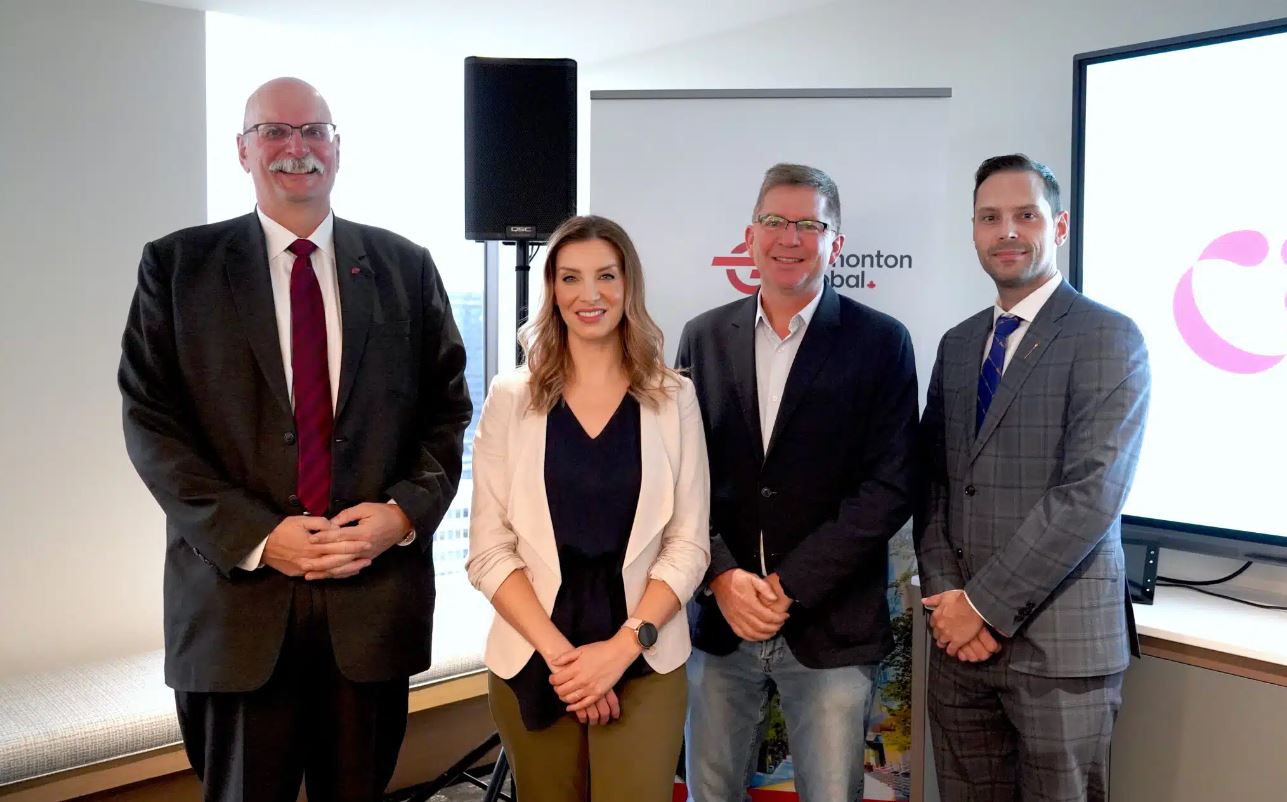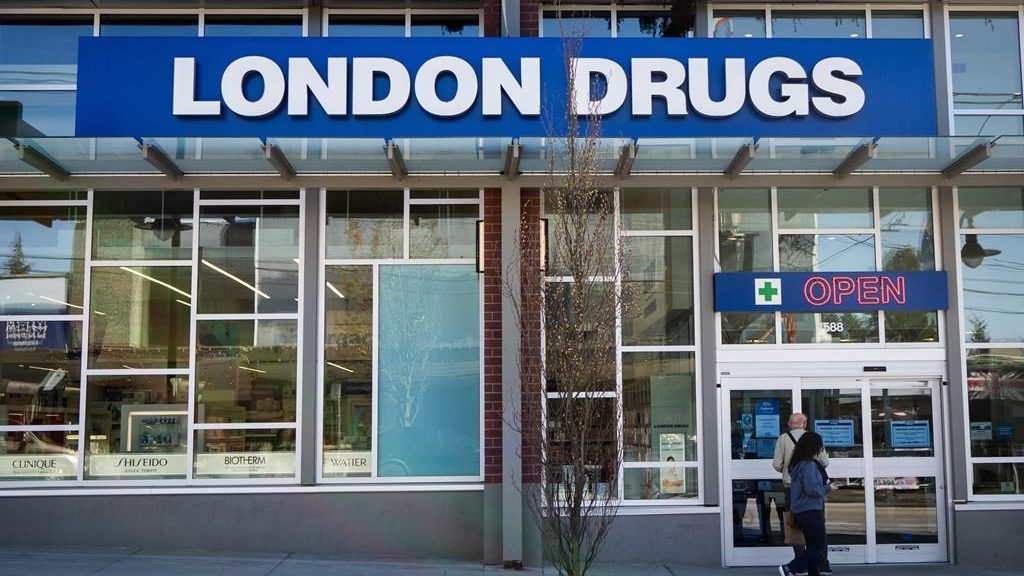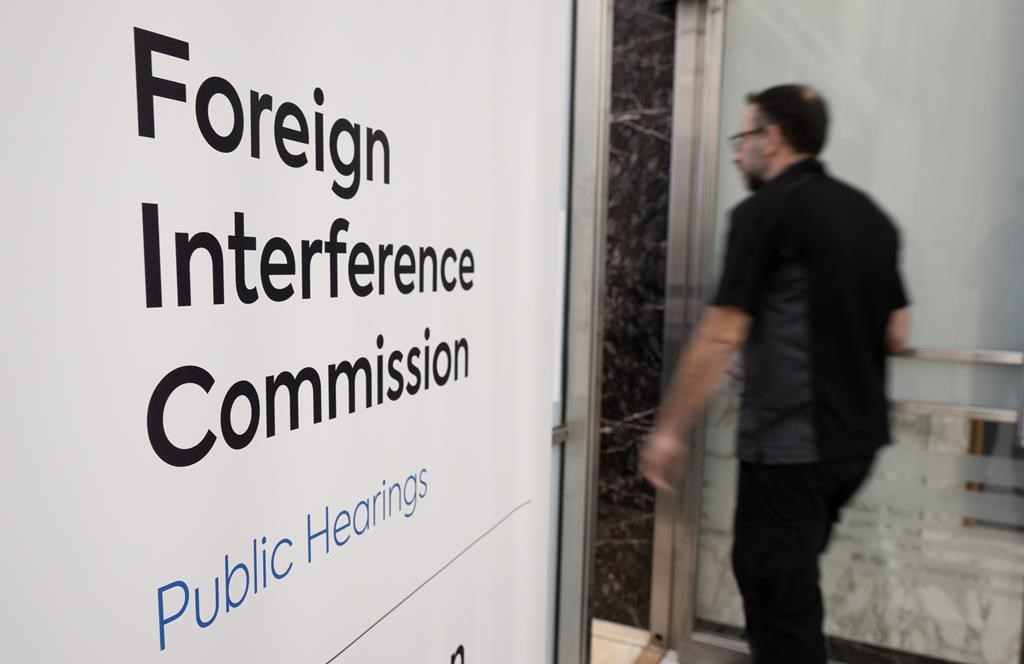Clinical research company choosing Edmonton for North American headquarters
Posted September 26, 2023 3:12 pm.
Last Updated September 26, 2023 8:11 pm.
A clinical research company says it chose Edmonton for its North American headquarters partly because it has a diverse community and is a growing hub for innovation.
Celero Global has done trials in more than 25 countries, with a focus on infectious diseases, metabolic diseases and oncology.
The CEO of Celero says there were seven reasons behind choosing Edmonton – one of them was the city’s diversity.
“The diversity of the Edmonton region, including the presence of Indigenous communities, offers a broad spectrum for clinical trials, making research more inclusive and relevant,” CEO Adham Rezk said.
Rezk also expressed an interest in collaborating with Edmonton’s existing research institutions, particularly in the field of oncology and diabetes, calling the city a hub for innovation.
“The U of A of course has spent a lot of resources on its science wing, its engineering wing,” said Moshe Lander, an economist at the University of Concordia in Montreal. “It’s inevitable that when you have all of that funding invested in teaching and training people, inevitably they will spill out into the workforce in the industries they were trained.
“They may recognize there are potential gains by working with local businesses that are the product of the U of A’s investment.”
Among the other reasons stated by Celero were Edmonton’s health-care infrastructure for possible enhanced clinical trials; a regulatory environment that encourages scientific advancements; and the city’s growing global recognition.

Celero Global press conference in Edmonton Sept. 26, 2023. From left to right: Malcolm Bruce, CEO of Edmonton Global; Hana Marinkovich, vice-president of corporate affairs at API; Coun. Tim Cartmell; and Alberta Minister Matt Jones. (Courtesy: Edmonton Global)
Lander believes another big reason Celero is coming to Edmonton could be the city’s affordability.
“Of course, Alberta in general offers the advantage of low taxes when it comes to corporations, when it comes to individuals, and the cost of living is certainly much cheaper, even in a costly Edmonton or Calgary compared to Vancouver,” said Lander.
“The U.S. is maybe unattractive to companies who are concerned about security risks or potential relations between countries, and because the U.S. has been a little bit more politically unstable over the past 10-20 years, you might look at Canada.”
Up to 50 jobs coming to Edmonton
Celero says each clinical trial could create between five and 50 new jobs, funneling money back into the city’s economy.
“Choosing Alberta as the home to Celero’s first North American location is a great choice for all of us,” said Alberta Minister of Jobs, Economy and Trade Matt Jones. “It supports Celero’s growth into additional international markets, while helping to diversify Alberta’s economy and create good-paying jobs.
“I’m proud to say we’ve seen leading population growth as a result of people realizing the opportunities we have here in Edmonton and Alberta.”
Lander says those 50 jobs will lead to even more economic windfalls.
“If you look beyond those 50 jobs, those 50 jobs usually create jobs of their own too,” said the economist. “If those are 50 people who are going to move to Edmonton, then they come with their families, and they come with their disposable income and that has spillover benefits.
“This has more than just the effect of 50 extra incomes in the Edmonton economy. Alberta benefits too. It broadens the tax pace, it broadens the number of people paying taxes, and so that could broaden the number of services we can offer as well.”
But as more people move to Edmonton for job opportunities, Lander says the city needs to plan ahead to handle the growth.
“They need to be forward looking at ‘where do we see ourselves in five years, 10 years, 20 years, and how are we going to make sure the infrastructure, schools, roads, hospitals, health-care system is ready for it?’” he said.
“Because once you get that stain on you that you can’t handle it, it’s very difficult to draw the next group back when the first group is leaving you a bad review on Yelp.”
According to Edmonton Global, each clinical trial will cost about $15 million, but about $9 million go directly back into the regional economy.








